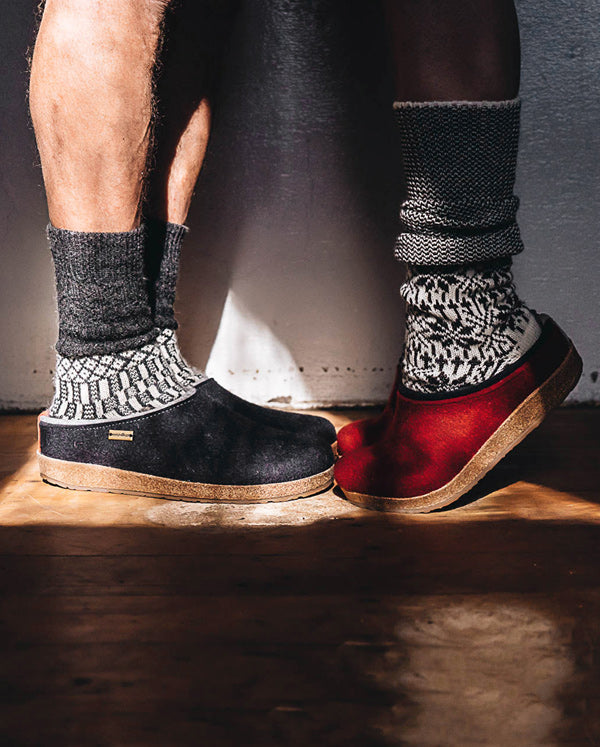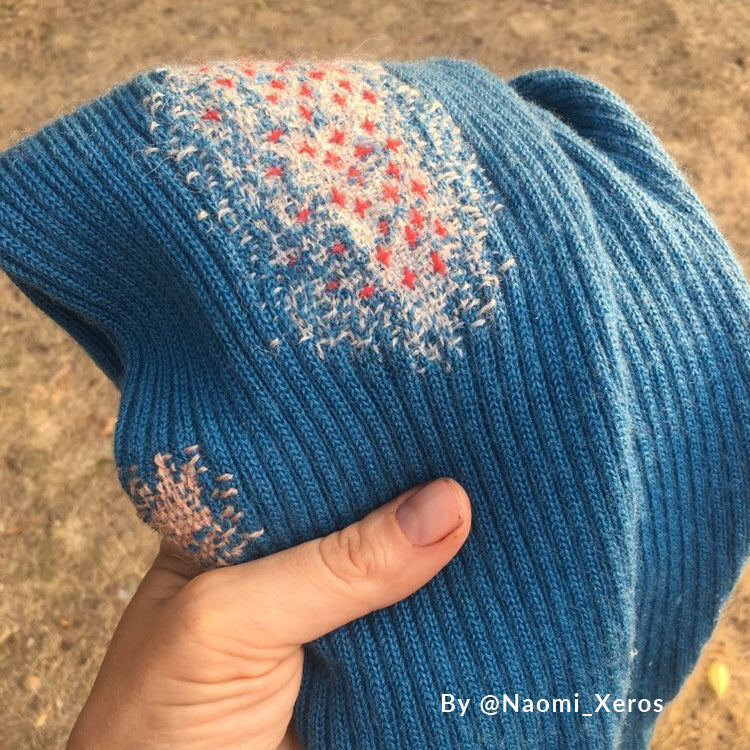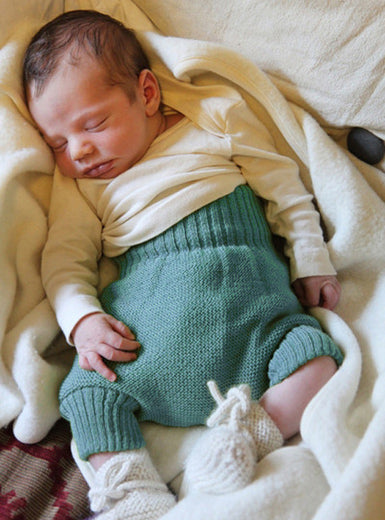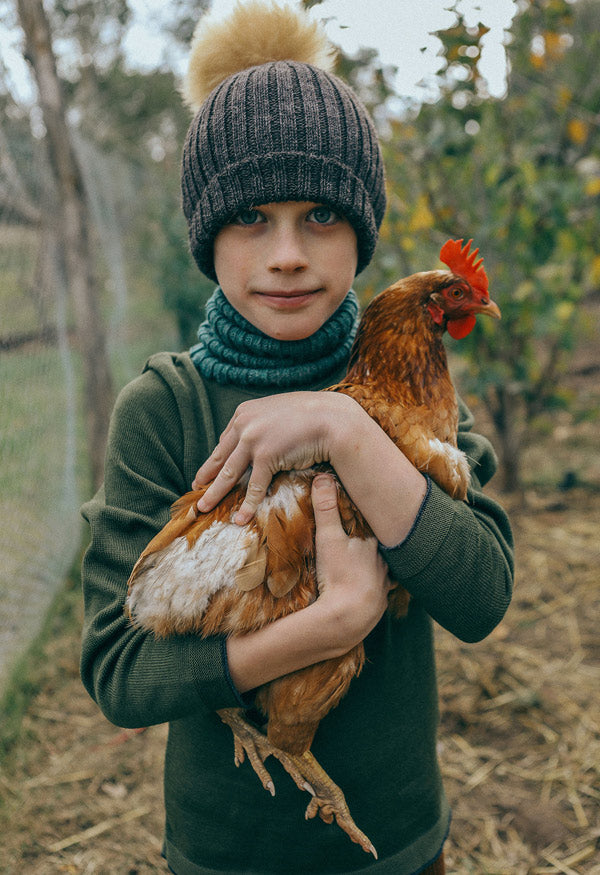Your Cart is Empty
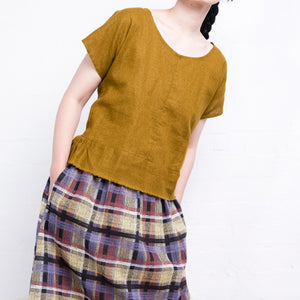
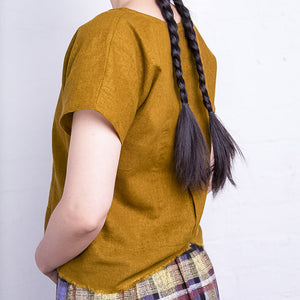
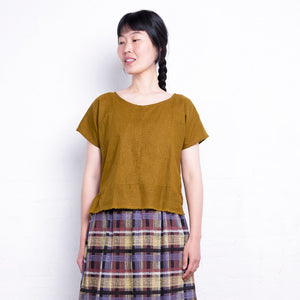
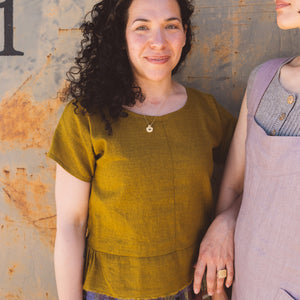
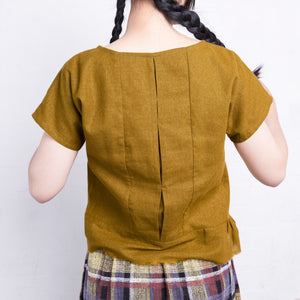
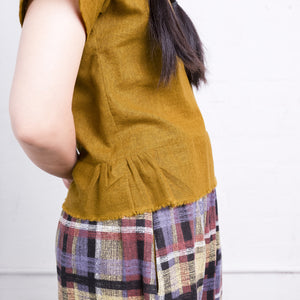
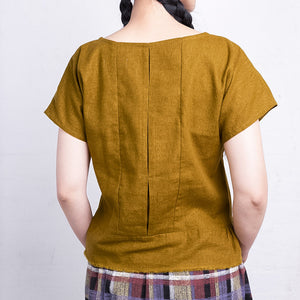
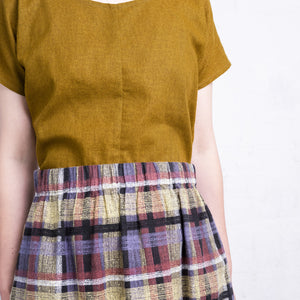
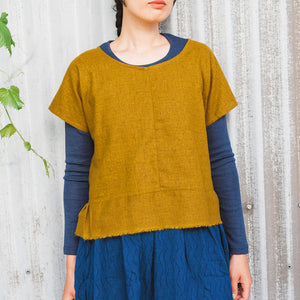
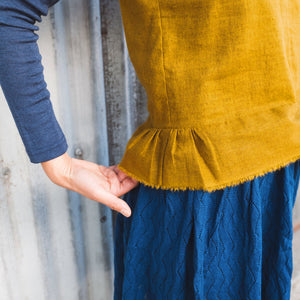
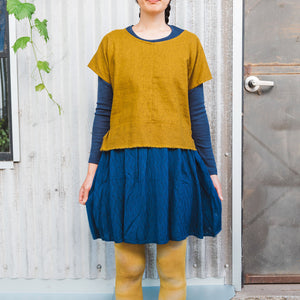
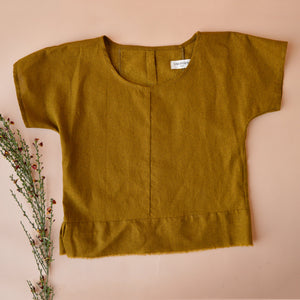
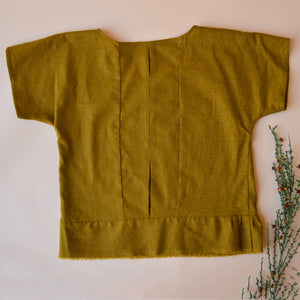
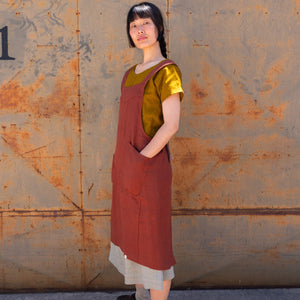
Pieces Top - Organic Linen/Cotton - Dijon (Women S-L)
$108.95$134.00
Umiform's Pieces Top in Japanese organic linen/cotton blend fabric in a beautiful Dijon mustard tone. Slight brushed nap and melange depth of colour. Modelled in Souk from a previous season which is a slightly brighter gold.
Umiform's Pieces Top in a beautiful blend of 55% organic linen and 45% organic cotton with a subtle brushed texture.
This comfortable, flattering and boxy Women's top was originally designed to use up linen offcuts and ensure very little fabric waste. Features side pleats, a selvedge hem and box pleats in the back panel. This cool and breezy linen and cotton blend is perfect for summer and great layered up in the cooler months with our merino/silk thermals.
Breastfeeding? Wear over the Cosilana spaghetti strap merino singlet for easy lift-up-pull-down access.
Made in Melbourne by UMIFORM for Woollykins
Colour:Dijon
Sizes: S-M (8-12), M-L (12-16)
Measurements: taken FLAT, compare to a similar fitting garment.
S-M: chest width 49cm, Length 55.5cm
M-L: chest width 51.5cm, Length 56.6cm
Brand: UMIFORM
Designed in: Castlemaine
Made in: Melbourne
Fabric: Made in Japan
Fabric composition: 55% Organic Linen, 45% Organic Cotton (220gsm) with a subtle brushed nap.
Certifications: OCS 100 (Organic Content Standard for products made from at least 95% organic materials), Oeko Tex certified
Machine Washable: Yes
Care: max 30º gentle machine wash. Line dry. Iron if preferred.
--
UMIFORM designs and makes utilitarian clothing for mothers who appreciate beautiful textiles. Handmade in small batches in Melbourne with a waste-free production - all surplus fabric going into childrenswear and mending kits.
--
Linen's eco credentials:
Linen is naturally stain resistant, does not pile, and is moth repellent. It is easy to wash and is a very strong fibre.
It is anti-bacterial, anti-fungal, hypo allergenic and thermoregulating, it will also absorb up 20% moisture before feeling damp.
Flax is a strong plant best grown in northern Europe. It needs little or no fertilisers and due to the local climate, little extra water. It doesn’t really require pesticides either as it can grow in poor quality soil. The Advisory Commission Report to the European Parliament stated that flax cultivation has positive effects on eco-system diversity as it allows for an “environmental pause”. One hectare of flax can retain 3.7 tonnes of CO2. Every part of the plant is used, what isn’t used to produce linen can be used to make linseed oil, paper, cattle feed or even soap.
Linen is therefore almost naturally organic. It is completely biodegradable, recyclable and due to its natural absorbency, it requires less dye than cotton. Linen therefore scores high on the ecological chart.
You may also like
